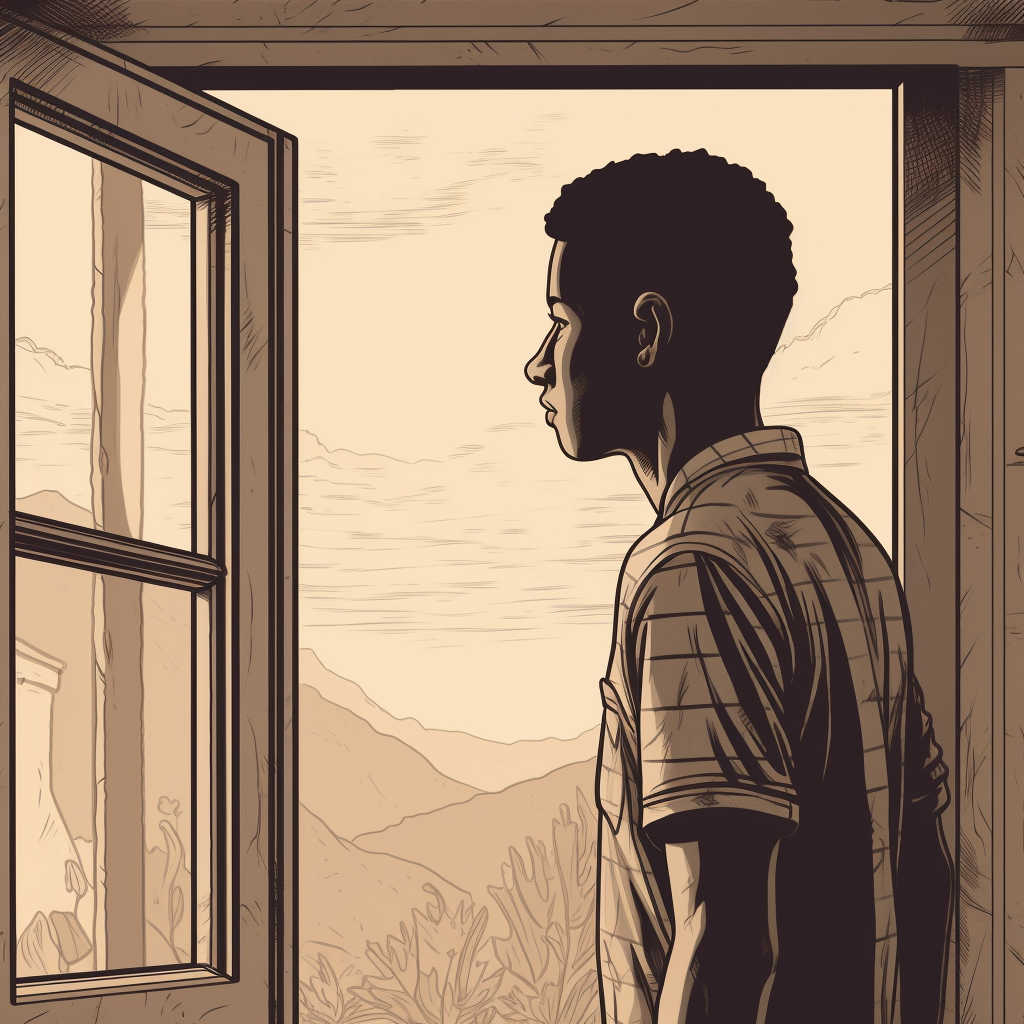Persistent memories of sexual abuse are haunting. One of the many symptoms of trauma, survivors often must live with the experience(s) forever and without reprieve. Shame, fear, paralysis, and other barriers can make living an everyday life a challenge, and it is often why survivors need months or years of therapy to manage the physical and mental harm. Survivors usually cannot live or function as they once did. As their quality of life changes, often so does their peace, joy, and happiness.
Child sexual abuse is considered one of the most under-reported and under-prosecuted issues. In Maryland today, you can sue your child sex abuser and the organization that may have enabled the abuse regardless of when it occurred. A win for survivors everywhere, there is no longer a statute of limitations for child sexual abuse cases.
Regardless of whether you were sexually abused as a child or as an adult, a Maryland sex abuse lawyer can help you make sense of your sexual abuse experience, identify potentially at-fault parties, and assist with filing a civil sex abuse lawsuit to help get justice and recover critical financial losses, from relevant medical expenses, lost wages, and damages for pain and suffering. More than any dollar amount, however, pursuing legal action can help the survivor reclaim the power from those that sought to steal it from them.
What Is Sexual Abuse or Assault?
The definitions of sexual abuse and assault can vary. There are several factors that play into things like consent. The laws in Maryland regarding abuse or assault may differ slightly from other states, which is something a local sex abuse attorney can shed more light on.
Sexual abuse is a sexual act forced upon a woman, man, or child without their consent. It can be a one-time incident, though sexual abuse often follows a repeated pattern. Sexual abuse can be physical or non-physical and include interactions such as touching another person’s genitals; forcing a person to touch another person’s genitals; putting objects or body parts inside the vagina, vulva, or anus; encouraging a person to perform sexual acts; exposing genitals to another person; photographing a person in the nude without their consent; and more. There are many forms of sex abuse, including child sex abuse, elderly sex abuse, sex abuse involving people with developmental disabilities, and more.
Sexual assault refers to any forced sexual contact or behavior that happens without another person’s mutual consent. Unlike sexual abuse, it always includes a physical element. Examples include attempted rape; fondling or unwanted sexual touching; forcing a person to perform sexual acts.

Regardless of whether you were sexually abused as a child or as an adult, a Maryland sex abuse lawyer can help you make sense of your sexual abuse experience, identify potentially at-fault parties, and assist with filing a civil sex abuse lawsuit to help get justice and recover critical financial losses.
Maryland’s Lookback Window: What To Know
Sex abuse survivors might feel ashamed or fearful of exposing the sex abuse they experienced as a child or adult. Sadly, survivors might blame themselves for the incident; they might not realize they were abused, or they may suffer from a delayed reaction to trauma. It is not uncommon for survivors to take months or years to speak out.
Twenty-four states embrace a “lookback window,” or a defined period when survivors can file a claim regardless of when the statute of limitations is. Maryland lookback window allow sex abuse survivors to bring lawsuits forward even if their claims have already expired under the previous deadline. The window gives survivors a greater chance for legal recourse.
What Is the Child Victims Act in Maryland?
Adult survivors of childhood sexual abuse can file claims against their abusers under the Child Victims Act. Effective October 1, 2023, adults can file a civil sex abuse lawsuit up to 20 years after the date of becoming an adult or 18 years old.
Maryland is one of the many states that has recognized the importance of allowing people more time to come to terms with their abuse and seek justice.
Although the Catholic Church was in opposition, the Child Victims Act passed with 42 senators voting in its favor.
What Is the Maryland Statute of Limitations?
The statute of limitations in Maryland refers to the period the State allows a person to file a lawsuit against another person who harmed them. Statute of limitations vary by state, but in Maryland, a sex abuse survivor has three years following the incident to file a civil lawsuit. There also are special considerations for children and adults.
A change to the statute of limitations, the Maryland Child Victims Act of 2023, allows survivors of child sex abuse to proceed with a civil lawsuit regardless of how long ago their sexual abuse occurred. Adults who were sexually abused have three years after the occurrence to pursue a civil lawsuit.
Maryland’s lookback window allows sex abuse survivors to bring lawsuits forward even if their claims have already expired under the previous deadline.
Can I Sue the Person Who Sexually Assaulted Me?
Sexual assault causes physical wounds and emotional scars. Survivors might want to seek justice and file a civil lawsuit against their abuser and/or an institution after experiencing molestation, rape, or another form of assault. Also, survivors can file a report with the authorities, who may decide to pursue criminal charges against the abuser.
A civil lawsuit allows a survivor to recover compensation directly for the physical harm and emotional distress caused by the abuse. Settlements vary and depend on the severity and frequency of the abuse, the age of the survivor, and many other factors. Damages can help pay for therapy, medical care, lost wages, other related expenses, as well as past and ongoing pain and suffering.
Criminal charges can also be filed, and authorities may pursue financial penalties and jail time. There are four degrees of sexual assault, and an abuser could face anywhere from nine months in jail to life in prison and fines of $10,000 and upwards.

Maryland Sex Abuse Lawsuits
What Damages Can Survivors Receive in a Sex Abuse Lawsuit?
Survivors of sex abuse must also face the financial burden of assault in addition to other complications of trauma. There are two ways survivors can recoup compensation for their physical and mental suffering: economic and non-economic damages.
Economic damages are awarded to sex abuse survivors to help recover their financial losses related to the incident. Damages can include medical expenses, therapy costs, and loss of income or earning capacity (current and future).
Non-economic damages are another option for recourse. Non-economic damages cover the ways an attack diminished a survivor’s quality of life, peace, and happiness. For example, a survivor could retain damages for long-term insomnia, panic attacks, decreased appetite, an eating disorder, or post-traumatic stress disorder (PTSD).
It is possible an abuser was supported by an organization that turned a blind eye to their behavior or who failed to take reasonable precautions to protect those around them. In those cases, a survivor can also sue a third party organization for their role in the event. Examples include churches, schools, camps, and other facilities.
How Much Compensation for Sexually Abused Victims Is Available?
Sex abuse settlements can range from thousands to millions of dollars, but there is no guarantee of compensation or how much a person might be awarded. The results of sex abuse cases depend on the severity and duration of abuse and whether the incident or continued incidents caused physical and mental harm and suffering.
The Child Victims Act of 2023 states that economic damages are not capped, while non-economic damages against private entities cannot exceed $1.5 million. Generally, civil lawsuits against public organizations cannot exceed $890,000.
Maryland Clergy Sexual Abuse Cases
Clergy abuse happens when a religious figure, like a priest or layperson, uses their role and power to sexually harass, exploit, or engage in unwanted sexual activity with another person.
Sexualized conversations with explicit language or jokes, pressured sexual activity, or the use of inappropriate text messages are examples of clergy sexual abuse. Sources show about 11,000 allegations have been made against nearly 5,000 priests from the 1950s to 2002.
Baltimore Catholic Church
This year, officials released a 500-page investigative report that detailed years of sexual abuse and cover-ups within the oldest Catholic diocese, the Baltimore Catholic Church. About 150 clergy members were accused of abusing more than 600 people over the years, and the pastor was also suspended for making a payment several years ago to settle sexual harassment allegations.
The Archdiocese of Baltimore filed for Chapter 11 Bankruptcy in September 2023, days before the revised Maryland state law went into effect, allowing survivors to sue their abusers after the statute of limitations filing window. It is a significant turn of events for survivors forced to participate in unwanted sexual activity with clergy members and officials.
Maryland Trafficking Lawsuits
Sex trafficking is a horrific crime, and it impacts the residents of Maryland. Federal human trafficking laws exist to prevent, stop, and help trafficking survivors as well as hold traffickers accountable so they do not hurt more innocent people.
The trafficking problem exists in many areas of the state as traffickers use any avenue at their disposal, such as airports, bus routes, train services, and large sporting events, to target victims. Sex traffickers can be prosecuted, but so can any entity that supports trafficking efforts, such as hotels, bus companies, the hospitality industry, and more.
The Federal Trafficking Victims Protection Reauthorization Act (TVPRA) has awarded survivors at least $255,298,993.50 in civil damages since 2020, and the number continues to grow. The Safe Harbor Law, or Senate Bill 292, passed in 2023, protects child survivors and ensures minors under 17 cannot be charged with certain offenses, such as trespassing, prostitution, driving without a license, theft, and using a false I.D.
Maryland Medical Sexual Abuse Cases
Sexual abuse during medical care is any inappropriate or non-consensual touching between a physician and a patient or another staff member. It might also include unnecessary exams or procedures that involve sexual touching, and sexual activity like touching unconscious patients.
Compared with other industries, healthcare is one climate more prone to sexual harassment and abuse. Historically, the industry has tolerated too many transgressions. Thirty to seventy percent of female physicians report being sexually harassed, and about five percent of female patients say they have experienced some misconduct during an exam with a healthcare provider.
Part of the problem is that Maryland did not always require criminal background checks for doctors, so it is no surprise this issue advanced sexual abuse incidents. A quick search on Google will uncover case after case involving doctors and their former rape convictions or suspensions due to inappropriate sexual behavior.
Maryland School Sexual Abuse Cases
There is a high prevalence of sexual misconduct in higher education, such as in universities and private schools. Unfortunately, only about 10 percent of incidents on campus are reported. Part of the problem is poor hiring practices, which can affect students and other faculty members.
Despite the facts, certain schools fail to implement better screening policies that help flag individuals with suspect histories involving abuse and harassment. Schools in the State must follow the Maryland Code of Education to keep children and youth safe when hiring new professors, teachers, camp counselors, coaches, and other staff. Monitoring and oversight after the hire is equally as critical, given institutions are also liable if they fail to acknowledge and take action in response to abuse and harassment reports.
Many colleges and universities lack clear guidance on available sanctions for faculty harassment. Usually, deans nor vice presidents have proper training on disciplinary interventions to stop and prevent more abuse, so the cycle continues. Institutions are legally responsible for any wrongdoing on campus, just as staff who commit sex abuse crimes are.

FAQs: Maryland Sexual Abuse Laws
What Are the Maryland Abuse Reporting Laws?
The safety of children is a shared concern among Maryland citizens and organizations. The Maryland Abuse Reporting laws require healthcare practitioners, educators, human service workers, and law enforcement officers to submit oral and written reports if they have any knowledge of child or vulnerable adult sex abuse through the appropriate governing bodies.
RAINN is the nation’s largest anti-sexual violence organization. It outlines what constitutes abuse and asks healthcare professionals to follow a step-by-step mandatory reporting process when submitting information for child sex abuse and vulnerable adult sex abuse cases. Vulnerable adults include individuals with developmental disabilities, mental health issues, and the elderly. Reporters are entitled to immunity under Maryland Family Law.
There are penalties for healthcare professionals who do not report sex abuse, which may become part of a civil abuse lawsuit later.
What Are the Maryland Sex Offender Laws?
Maryland sex offender laws dictate that specific sex crimes require perpetrators to be handed a lifetime sexual offender supervision sentence. Examples of some registrable sex crimes include sexual solicitation of a minor, sexual abuse of a minor, perverted sexual practice, child pornography, and human trafficking.
Among the revised and notable 2023 laws to protect children from harm, perpetrators become part of the Maryland sex offenders list and the Maryland sex offender database, which are maintained by the Maryland Department of Public Safety and Correctional Services (DPSCS). Both tools are part of the State’s effort to protect children and others from those with histories of crimes against children and other sexual offenses.
Where Can Sex Offenders Live in Maryland?
About 6,500 sex offenders live in Maryland as of March 2023. To the surprise and dismay of many residents, particularly parents, sex offenders do not have to follow the same strict housing rules those in other states do.
Unlike many other states, Maryland does not prohibit where a sex offender can live while on the sex offender registry. For comparison purposes, sex offenders in other states are mandated to live a certain distance away from buildings or spaces where children frequent. Sex offenders in Maryland can live next to a school, but they are not legally allowed to be onsite at daycares or elementary and secondary schools.

Resources for Survivors of Sexual Abuse in Maryland
Survivors of sexual abuse might need emergency help, treatment options, or recommendations for legal aid. The Maryland Attorney General offers resources, from helplines to healthcare organizations to case management services. Some examples include:
- The National Human Trafficking Resource Center is a national hotline that connects people with anti-trafficking resources in the area, training, and technical assistance. The 24-hour hotline is 1-888-373-7888, and the text line is 233733 (BEFREE).
- For All Seasons, Inc. provides rape crisis services for survivors of sexual assault, sexual abuse and trauma, and human trafficking. The 24-hour hotline is 1-800-310-7273, and the 24-hour Spanish hotline is 410-829-6143.
- Maryland Coalition Against Sexual Assault helps stop trafficking through its public policy and community outreach efforts as well as helps to provide survivors with access to rape crisis centers, sexual assault kits, and more. Reach them at 301-565-2277.
- Hopeworks is a direct crisis intervention service, and it offers long-term supportive healing programs for individuals impacted by sexual assault, intimate partner violence, and human trafficking. The 24-hour helpline is 410-997-2272.
A Maryland Sex Abuse Lawyer Is Here To Help
Maryland is among the many states joining forces to reform previous laws so more survivors can seek justice. Survivors of sex abuse have more options today to recover financial losses than ever before, especially on the heels of Maryland and its new and improved laws enabling survivors to pursue civil lawsuits to recover damages.
StrongerThan.org is an educational resource that lifts survivors as they heal and recover from sexual abuse. It is a thoughtful tool for survivors to discover the best avenues for recourse, including connections to local and community organizations, legal help, healthcare recommendations, and much more.
All sex abuse survivors have a unique journey, and our team is devoted to helping people find their footing again after trauma and recover in a way (and when) that benefits them. You can reach out to us today for a free and confidential consultation. Always remember: You are stronger than your past.



